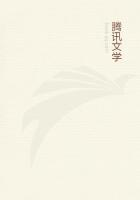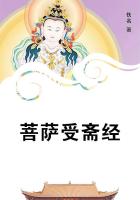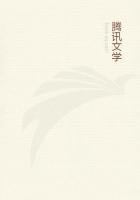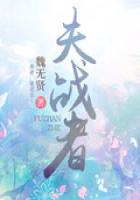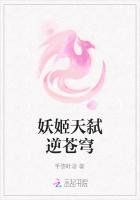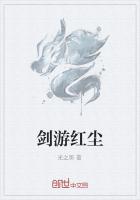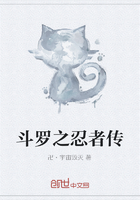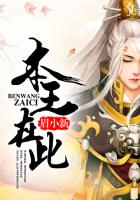"Well, honor is the subject of my story;
I cannot tell what you and other men Think of this life; but for my single self, I had as lief not be, as live to be In awe of such a thing as I myself."
"Two truths are told As happy prologues to the swelling act, Of the imperial theme."
"This is the eve of Christmas, No sleep from night to morn;
The Virgin is in travail, At twelve will the Child be born."
Cities have not only a certain physiognomy; they have also a decided mental and moral character, and a definite political tendency. There are good and bad cities, artistic and commercial cities, scholarly and manufacturing cities, aristocratic and radical cities. San Antonio, in its political and social character, was a thoroughly radical city.
Its population, composed in a large measure of adventurous units from various nationalities, had that fluid rather than fixed character, which is susceptible to new ideas. For they were generally men who had found the restraints of the centuries behind them to be intolerable--men to whom ******* was the grand ideal of life.
It maybe easily undertood{sic} that this element in the population of San Antonio was a powerful one, and that a little of such leaven would stir into activity a people who, beneath the crust of their formal piety, had still something left of that pride and adventurous spirit which distinguished the Spain of Ferdinand and Isabel.
In fact, no city on the American continent has such a bloody record as San Antonio. From its settlement by the warlike monks of 1692, to its final capture by the Americans in 1836, it was well named "the city of the sword." The Comanche and the white man fought around its walls their forty years' battle for supremacy. From 1810 to 1821 its streets were constantly bloody with the fight between the royalists and republicans, and the city and the citadel passed from, one party to the other continually. And when it came to the question of ******* and American domination, San Antonio was, as it had ever been, the great Texan battle-field.
Its citizens then were well used to the fortunes and changes of war. Men were living who had seen the horrors of the auto da fe and the splendors of viceregal authority. Insurgent nobles, fighting priests, revolutionizing Americans, all sorts and conditions of men, all chances and changes of religious and military power, had ruled it with a temporary absolutism during their generation.
In the main there was a favorable feeling regarding its occupation by the Americans. The most lawless of them were law-abiding in comparison with any kind of victorious Mexicans. Americans protected private property, they honored women, they observed the sanctity of every man's home; "and, as for being heretics, that was an affair for the saints and the priests; the comfortable benefits of the Holy Catholic Church, had not been vouchsafed to all nations."
Political changes are favorable to religious tolerance, and the priests themselves had been sensible of a great decrease in their influence during the pending struggle. Prominent Mexicans had given aid and comfort to the Americans in spite of their spiritual orders, and there were many men who, like Lopez Navarro, did not dare to go to confession, because they would have been compelled to acknowledge themselves rebels.
When the doctor and Dare and Luis reached the Plaza, the morning after the surrender, they found the city already astir. Thousands of women were in the churches saying masses for the dead; the men stood at their store doors or sat smoking on their balconies, chatting with the passers-by or watching the movements of the victorious army and the evacuation of the conquered one.
Nearly all of the brave two hundred occupied the Plaza. They were still greatly excited by the miraculous ecstacy of victory. But when soldiers in the death-pang rejoice under its influence, what wonder that the living feel its intoxicating rapture? They talked and walked as if they already walked the streets of Mexico. All things seemed possible to them. The royalty of their carriage, the authority in their faces, gave dignity even to their deerskin clothing. Its primitive character was its distinction, and the wearers looked like the demi-gods of the heroic stage of history.
Lopez Navarro touched the doctor and directed his attention to them. "Does the world, Senor, contain the stuff to make their counterparts?"
"They are Americans, Navarro. And though there are a variety of Americans, they have only one opinion about submitting to tyrants--THEY WON'T DO IT!"
This was the conversation interrupted by Ortiz and the message he brought, and the doctor was thoroughly sobered by the events following. He was not inclined to believe, as the majority of the troops did, that Mexico was conquered. He expected that the Senora's prediction would be verified. And the personal enmity which the priesthood felt to him induced a depressing sense of personal disaster.
Nothing in the house or the city seemed inclined to settle.
It took a few days to draw up the articles of capitulation and clear the town of General Cos and the Mexican troops. And he had no faith in their agreement to "retire from Texas, and never again carry arms against the Americans." He knew that they did not consider it any sin to make "a mental reservation" against a heretic. He was quite sure that if Cos met reinforcements, he would have to be fought over again immediately.
And amid these public cares and considerations, he had serious private ones. The Senora was still under the control of Fray Ignatius. It required all the influence of his own personal presence and affection to break the spiritual captivity in which he held her. He knew that the priest had long been his enemy.
He saw that Antonia was hated by him. He was in the shadow of a terror worse than death--that of a long, hopeless captivity.
A dungeon and a convent might become to them a living grave, in which cruelty and despair would slowly gnaw life away.

